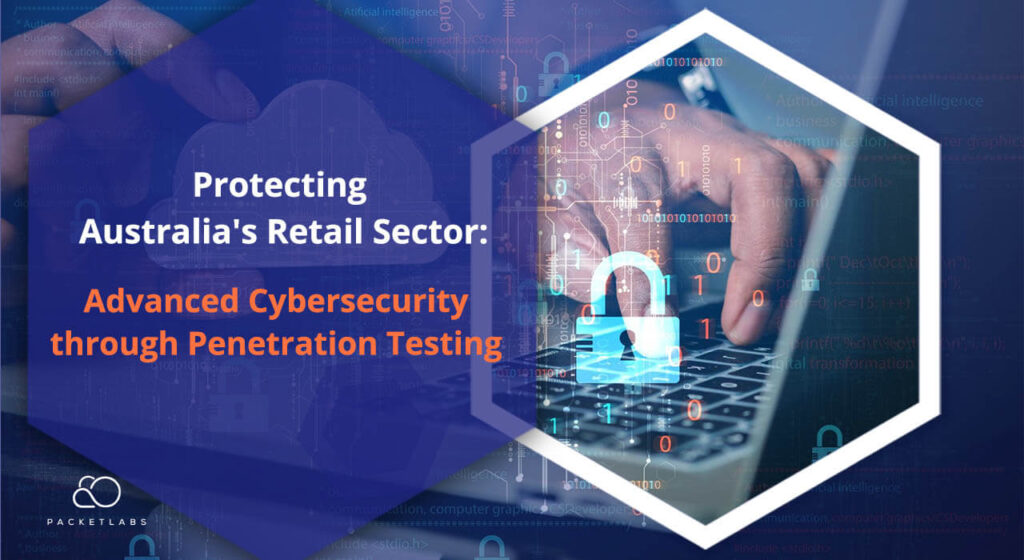
In the dynamic and ever-evolving world of retail, the Australian sector faces a myriad of challenges, especially in the realm of cybersecurity. With the increasing reliance on digital platforms for sales, customer engagement, and supply chain management, the need for robust cybersecurity measures has never been more pressing. This article explores the vital role of penetration testing in safeguarding Australia’s retail industry against the growing tide of cyber threats.
The Rising Cybersecurity Concerns in Australian Retail
Firstly, it’s crucial to understand the digital landscape in which the Australian retail sector operates. The industry has embraced online platforms, e-commerce, and digital payment systems, significantly enhancing customer experience and operational efficiency. However, this digital transformation has also opened doors to various cybersecurity risks, such as data breaches, ransomware, and phishing attacks. These threats not only jeopardize sensitive customer data but also threaten the integrity and reputation of retail businesses.
Penetration Testing: A Proactive Defence Mechanism
In this context, penetration testing emerges as a proactive and strategic approach to cybersecurity. Penetration testing, or pen testing, involves simulating cyber-attacks on a business’s digital infrastructure to uncover vulnerabilities before malicious hackers can exploit them. For the Australian retail sector, this approach offers several key benefits.
Holistic Approaches to Cybersecurity and Penetration Testing
1. Identifying and Mitigating Vulnerabilities
Penetration testing allows retailers to identify and mitigate potential security weaknesses in their networks, applications, and other digital systems. By understanding where vulnerabilities lie, retailers can take preemptive steps to fortify their defences, thus reducing the risk of cyber-attacks.
2. Compliance and Customer Trust
Furthermore, Australian retailers are bound by regulations like the Privacy Act 1988, which mandates the protection of personal information. Regular penetration testing helps ensure compliance with these laws, reinforcing customer trust and loyalty. After all, customers are more likely to engage with retailers they believe are safeguarding their personal data.
3. Tailored Security Strategies
Moreover, the retail sector’s diverse range of digital assets, from customer databases to payment systems, requires customised security solutions. Penetration testing provides insights specific to the unique digital environment of each retailer, allowing for the development of tailored cybersecurity strategies.
4. Building a Cyber-Resilient Culture
Additionally, penetration testing plays a critical role in fostering a culture of cybersecurity awareness within retail organisations. It highlights the importance of security among staff members, from the IT team to the front-line employees, ensuring that everyone is vigilant and prepared to respond to potential cyber threats.

Implementing Penetration Testing in the Retail Sector
For effective penetration testing in the Australian retail sector, certain best practices should be followed:
1. Engage with Cybersecurity Experts
Partnering with reputable cybersecurity firms that understand the retail landscape is crucial for effective penetration testing.
2. Regular and Comprehensive Testing
Given the fast-paced evolution of cyber threats, retailers should conduct penetration testing regularly and ensure it covers all aspects of their digital infrastructure.
3. Actionable Insights and Continuous Improvement
The results from penetration tests should be used to make continuous improvements in the cybersecurity posture of the retail business.
4. Educating and Training Staff
Retailers should also invest in training their staff on cybersecurity best practices and the importance of maintaining a secure digital environment.
In conclusion, as the Australian retail sector continues to grow and evolve in the digital space, the importance of advanced cybersecurity measures, particularly penetration testing, cannot be overstated. By proactively identifying vulnerabilities, ensuring compliance, developing customised security strategies, and fostering a culture of cybersecurity awareness, retailers can safeguard their businesses against cyber threats. This proactive approach not only protects sensitive data but also strengthens the overall health and resilience of Australia’s thriving retail industry.
